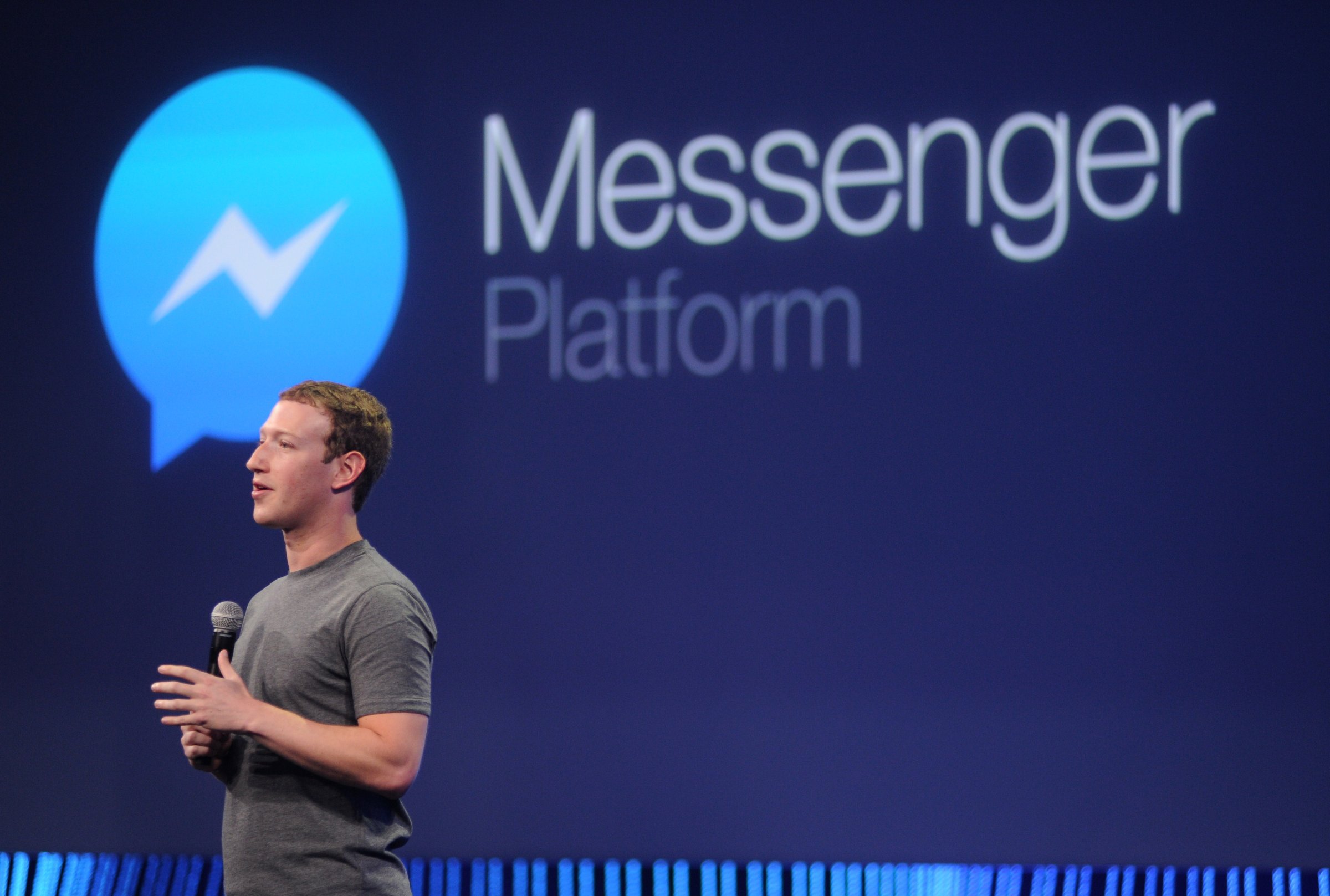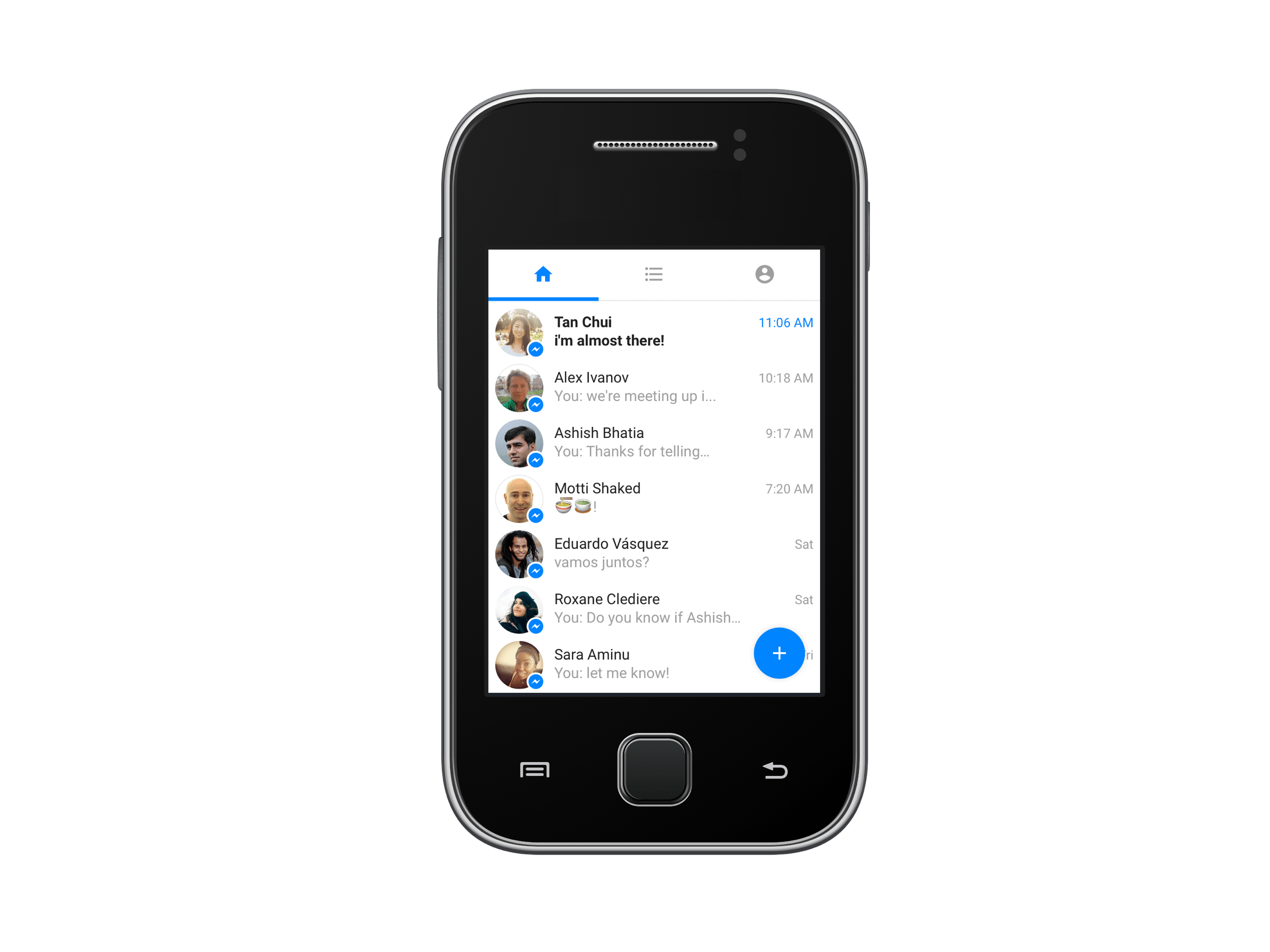
Generally, technology companies like Facebook tend to add new features to their software over time. Facebook’s Messenger app, for instance, recently added opinion polls and live video, among other new tricks.
But with its latest app, Facebook is taking the opposite approach. Facebook Messenger Lite, launching soon for Android devices, is a stripped-down version of Messenger featuring only the app’s core features. It’s been designed to work on low-bandwidth Internet connections, or on older phones that don’t have the latest, most powerful hardware. That might make it particularly useful in countries with minimal high-speed mobile broadband infrastructure. Accordingly, it’s rolling out first in Kenya, Tunisia, Malaysia, Sri Lanka and Venezuela. (It will launch in more countries over the coming months, Facebook says.)

When designing Messenger Lite, Facebook made a point of excluding features that take up a lot of Internet bandwidth or storage space on a phone. Gone are video calling, animated GIFs, and voice-over-IP (VoIP) calling. The current version of Messenger Lite takes up less than 10 megabytes of space on a phone, significantly less than the 219MB the standard iPhone version of Messenger uses. (Messenger can take up 42.7MB on certain Android phones.)
So what will Messenger Lite users actually be able to do? There’s text-based messaging, of course. But they’ll also be able to send stickers, links, and photos to one another, plus share their physical location.
Even though Facebook is initially launching Messenger Lite abroad, the company believes there’s a place for it in the U.S. as well.
“If you live in New York or San Francisco, you don’t meet a lot of people that have six-year-old phones. But there are lots of places [where] people actually don’t care,” said David Marcus, Facebook’s vice president of messaging products. “Communication is such a primary thing that you need to do, that we wanted to make sure that everyone has access to Messenger.”
Facebook Messenger Lite is the latest of Facebook’s numerous efforts to make the Internet more accessible worldwide. The company’s Free Basics program, part of its Internet.org initiative, lets users in certain countries access a limited selection of web services for free without a data plan. That scheme has been met with controversy, as critics argue that it favors certain services over others, making it tougher for rivals to compete.
Meanwhile, Facebook has been busy developing Messenger itself into a fully-fledged platform, adding third-party apps and chatbots that expand the app’s functionality. Facebook is hoping Messenger will be one of the only — if not the only — apps you need. With that in mind, it only makes sense for Facebook to ensure that some form of Messenger is available worldwide.
“If you have enough experiences inside of Messenger and you can reach enough businesses . . . you’re going to start building that behavior of actually going to Messenger and [it] becoming more of your go-to place to do all of these things,” says Marcus. “And [it] will basically become this remote control for everything you’re trying to do in your life.”
More Must-Reads from TIME
- Donald Trump Is TIME's 2024 Person of the Year
- Why We Chose Trump as Person of the Year
- Is Intermittent Fasting Good or Bad for You?
- The 100 Must-Read Books of 2024
- The 20 Best Christmas TV Episodes
- Column: If Optimism Feels Ridiculous Now, Try Hope
- The Future of Climate Action Is Trade Policy
- Merle Bombardieri Is Helping People Make the Baby Decision
Contact us at letters@time.com